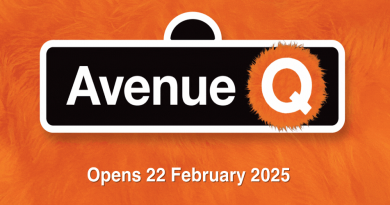The Geopolitical Impact of Bitcoin: How Nations are Adopting or Resisting Crypto
Ah, Bitcoin. The digital gold that has inspired revolutions, confounded policymakers, and caused more “I told you so” moments at family dinners than any other technological innovation. It’s been over a decade since Satoshi Nakamoto’s brainchild entered the world, and while it hasn’t replaced fiat currencies (yet), many investors continue to buy Bitcoin as it reshapes the global financial and political landscape.
Bitcoin: A Threat or an Opportunity?
Nations worldwide are grappling with a dilemma: Is Bitcoin a threat to their sovereignty, or is it an opportunity for innovation? To answer this, let’s put on our geopolitical hats and examine how different countries are reacting to crypto.
The Pioneers: Nations Embracing Bitcoin
Countries like El Salvador have gone all-in. When President Nayib Bukele announced in 2021 that Bitcoin would become legal tender, skeptics scoffed, economists wrung their hands, and Bitcoiners rejoiced. Say what you will about Bukele’s style, but the move put El Salvador on the map as a bold crypto experiment. (It also gave me a great excuse to finally visit those gorgeous beaches.)
El Salvador’s embrace of Bitcoin is a fascinating case study. The government launched a wallet app, Chivo, and incentivized citizens with free Bitcoin. While adoption has been uneven, the initiative highlighted Bitcoin’s potential to bring financial inclusion to the unbanked—a staggering 70% of Salvadorans before the Bitcoin Law.
Other countries are watching closely. Central African Republic (CAR) followed suit, though with less fanfare and more questions about implementation. Could we see a trend where smaller nations leapfrog traditional banking systems with blockchain tech? Possibly, though there are plenty of challenges.
The Resistors: Bitcoin as a Threat
On the flip side, we have countries like China, which decided that Bitcoin mining was too disruptive (and, let’s be honest, probably too independent for comfort). In 2021, China banned crypto mining, driving miners to friendlier jurisdictions like Kazakhstan and the United States. It was a bold move, and while it did briefly tank Bitcoin’s price, the network proved remarkably resilient. (Take that, authoritarian regimes!)
India is another intriguing case. The government oscillates between proposing bans and taxing crypto transactions into oblivion. It’s almost as if they’re saying, “We’re not sure if we want to kill it or profit from it, so we’ll do both.” As someone who’s tried navigating Indian bureaucracy, I can confirm this level of indecision feels oddly on-brand.
The Silent Observers: Hedging Their Bets
Then there are the silent observers: countries like the U.S., which haven’t fully embraced or rejected crypto. Regulatory clarity remains elusive, with debates over whether Bitcoin is a commodity, a security, or some strange new category that requires its own acronym.
As an American, I’ve seen this hesitation up close. On one hand, the SEC occasionally flexes its regulatory muscles, going after dubious projects. On the other, places like Miami and Wyoming are building crypto-friendly ecosystems. It’s like watching a split personality in action—fascinating, but also a little frustrating.
Personal Reflections on Bitcoin’s Geopolitical Journey
My first interaction with Bitcoin was in 2014. I bought a fraction of a coin because a friend told me it was the future. Back then, it felt like Monopoly money. Fast forward to today, and I’m kicking myself for not buying more. (A story as old as time in the crypto world.)
What struck me most over the years is how Bitcoin has forced people to confront uncomfortable questions. What is money? Who should control it? And why do so many world leaders look like they’ve aged 20 years every time crypto comes up?
The Road Ahead
As Bitcoin continues to evolve, so too will its geopolitical implications. Will more nations follow El Salvador’s lead, or will the resistors double down? Only time will tell. One thing is certain: Bitcoin has sparked a global conversation about money, power, and freedom. And whether you’re a hodler, a skeptic, or just here for the memes, you’re part of that story.
So, the next time someone asks, “What’s the deal with Bitcoin?” feel free to share this article. Or better yet, send them a fraction of a satoshi. Who knows—it might just change their life.



